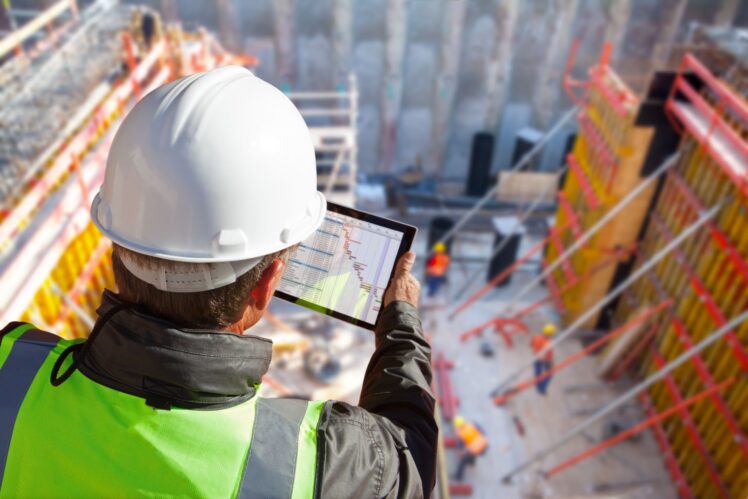Construction Project Management 2024 Tips tools best practices to know

Are you planning a construction project in 2024? Then you’re in luck! With the right tools and best practices, you can make sure your project is organized, efficient and successful.
In this blog, we’ll look at the most important tips for managing construction projects in the future and how to use the latest tools to make your life easier. So, if you’re ready to start building your dream project, let’s get started!
Tips for Effective Construction Project Management

Source: constructionblog.autodesk.com
They involve large teams and require a well-defined process for managing every phase of the job, from planning and budgeting to execution and closeout. To ensure a successful outcome, effective construction project management is essential. Here are some tips to help you make the most of your construction project:
- Have clear objectives. Set out specific goals at the outset of it and have everyone involved commit to them. A strong focus on concrete objectives will give everyone involved in the project a sense of purpose and help keep it on track. Make sure to check out Jonas Premier to learn more about effective construction project management strategies and best practices.
- Create realistic timelines. Set timelines that are achievable within the available resources, including manpower, equipment and materials. Unexpected delays can have a huge impact on costs so it’s important to ensure that any deadlines set are realistic, achievable, yet challenging enough to drive progress forward.
- Monitor progress regularly. Regularly review milestones throughout the project and be prepared to adjust plans accordingly should circumstances change along the way. Keep stakeholders updated with clear communication about possible issues or changes that may occur throughout the project life cycle as soon as they arise – this will help your team stay focused on completing tasks efficiently as well as minimizing delays for delivery of key components or other related activities outside of their control.
Tools for Construction Project Management

Source: austintec.com
Once you’ve identified the goals and objectives, it is important to choose the right tools for managing the different aspects involved. There are a number of online construction project management tools that can help you successfully manage the entire process from any location. These tools allow you to track budgets, process change orders, or establish teams and resources throughout it.
Some key features of effective construction management software include:
- Real-time budget tracking to get an accurate view of any potential cost overruns;
- Integrated document storage with access capabilities and permission settings;
- Scheduling that allows for task delegation and date tracking;
- Digital workflows to streamline review process for permits, bills, etc.;
- Dashboards that provide visual overviews of current jobs and performance metrics;
- Mobile applications for real time updates from anywhere in the field; and
- AI capabilities that facilitate predictive analytics for future development.
This software should help to promote better collaboration between team members and stakeholders, enabling all involved parties’ transparency into the overall progress. By taking advantage of these powerful tools, managers can ensure smoother projects with fewer delays or problems down the line.
Best Practices for Construction Project Management

Source: sinnaps.com
To ensure the success, there are several best practices that will improve project performance, communication and collaboration with your team. Adopting the right processes and tools to handle the variety of tasks associated with a construction project can help ensure projects stay on track and on budget. The following tips offer some simple yet effective best practices to help make construction projects run as smoothly as possible.
- Establish clear objectives: Establishing clear objectives for each stage of the project is essential for setting realistic timelines and cost estimates. By breaking down large-scale tasks into smaller components, these managers can easily identify areas of responsibility and create accurate budget projections. Setting key milestones at regular intervals allows teams to remain focused on the overall vision while having measurable goals in place to provide direction throughout the duration of a build.
- Implement standard protocols: Developing a “living” set of standard operating procedures is one way to keep team members informed about existing protocols or changes that need to be made throughout the course of a build. By addressing issues before they become problems, teams can save time and resources while helping projects move forward efficiently.
- Use up-to-date technology: Leveraging modern cloud technology enables teams to share critical information in real time while also providing insight into progress throughout all phases of a build. These offer powerful features such as automated reporting capabilities, task list features, resource management tools and more, allowing teams to collaborate in real-time or remotely whenever needed.
Emerging Trends in Construction Project Management

Source: linkedfield.com
In the last few years, they have shifted to a more collaborative style of doing business. Technology is playing an increasingly important role in streamlining project processes and enabling cross-functional coordination. The industry is also focusing more on creating integrated teams that are better equipped to manage complex projects, as well as promoting sustainability initiatives and the latest building codes. Here are some emerging trends that all those involved in it need to be aware of:
- Digitization of Construction Processes – Companies in the industry have initiated extensive digital transformations across their workflows. This is helping them to automate procedures, improve communication between various participants, and reduce costs associated with human resources.
- Integrated Design–Build Delivery – More stakeholders are now prioritizing integrated delivery models because they result in lower build times and offer more value for money than traditional design–bid–build approaches. By bringing everyone together under one umbrella, these models make it easier to anticipate potential problems and keep projects on track.
- Leveraging Automation Tools – As technologies like artificial intelligence continue evolving, companies must adopt them if they want to stay competitive. Automation tools are being used both on-site and off-site for a variety of tasks including asset tracking, managing data, forecasting openings/completions times and gathering progress reports from contractors/subcontractors etc., allowing greater efficiency among the project team members while saving time and money by avoiding delays throughout the construction process.
Conclusion
We have shared numerous tips, tools and best practices to consider when managing a construction project in 2024. Ultimately, an effective construction project manager is someone who understands the industry, knows how to manage a team of people and has a range of skills that encompass communication, technological understanding, problem solving, organization and strategic insight.


